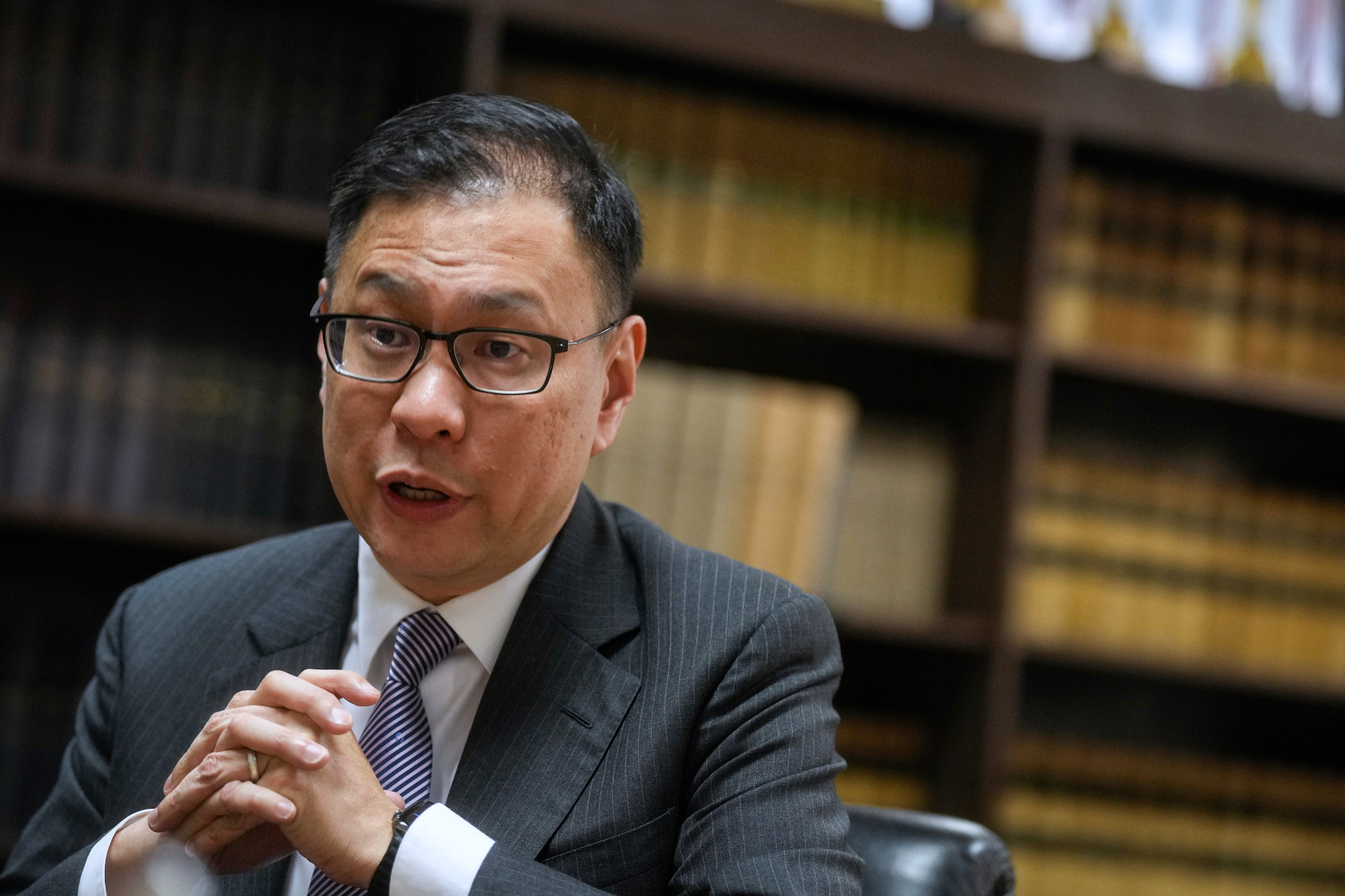
Hong Kong Bar Association head backs public interest defence for Article 23 domestic national security law
- Anyone arrested for state secrets offences should be entitled to public interest defence but threshold ‘cannot be low’, association chairman Victor Dawes says
- Secretary for Justice Paul Lam says there could be ‘extreme’ circumstances where public interest of making a disclosure could override need to maintain secret
Theft of state secrets is among the offences authorities have proposed as part of a new ordinance required under Article 23 of the Basic Law, the city’s mini-constitution. Some lawmakers earlier suggested journalists should be able to use public interest as a defence if they revealed classified materials involving significant public interest.
Senior Counsel Dawes on Friday said including a public interest defence as part of the legislation was “certainly something worth considering”, noting that similar suggestions had been made by law reform bodies in other jurisdictions for offences related to national or information security.
“My very preliminary view is that given that the offence can be committed by anyone, we should really consider whether the defence should be made available to anyone who is suspected of having committed this offence,” Dawes said before a meeting of the association, the body regulating the city’s 1,600 barristers.

The threshold for using the defence “cannot be too low” and authorities should clearly define the burden of proof and the circumstances in which the defence applied, he argued.
According to the government’s consultation paper, the Official Secrets Ordinance will be updated to cover seven types of “secrets”, including information about major policy decisions on national and local affairs, the economic, social, technological or scientific development of the country or city, and external affairs of Hong Kong and its relationship with Beijing.
Dawes said he believed that in some cases, matters of public interest and threats to national security might coexist to varying degrees.
“There may be cases where the harm [to national security ] is not that significant, but relatively speaking, the public interest of the disclosure could be very high,” he said. “Under these circumstances, there is room for discussion as to whether the defence can be introduced.”
Legal experts concerned over ‘vague’ intent conditions in Hong Kong’s security law
But he refused to comment on whether the government’s proposed definition of state secrets was too broad, saying the Bar Association would need more time to formulate an official opinion on the consultation paper.
Secretary for Justice Paul Lam Ting-kwok on Friday said there was no consistent approach among the foreign jurisdictions studied by the government in offering the public interest defence and authorities would ensure no loopholes were available if it was introduced in the city.
But he recognised there could be “extreme” circumstances where the public interest of making a disclosure could override need to maintain the secret.
“Maybe it’s very critical that without telling the public [about the secret], it could give rise to a lot of casualties,” he said. “There could be situations that the public interest of [making a state secret] known to the public may be greater than maintaining the confidentiality of the state secret, and this may be an overriding factor here.
“The threshold must be high even with these exceptional circumstances.
Security minister Chris Tang Ping-keung told lawmakers on Tuesday that the government was “actively studying” whether to allow a public interest defence for media reporting on matters involving state secrets.
A similar defence was included in the first Article 23 legislation proposed in 2003, which the government abandoned after half a million residents marched in protest. Regina Ip Lau Suk-yee resigned as secretary of security as a result.
More clarity needed on Hong Kong security law to reassure investors, experts say
Ip, now convenor of the Executive Council that advises the city leader, welcomed the inclusion of the public interest defence in the coming legislation, saying freedom of information was vital for Hong Kong’s role as a financial hub.
But Exco member and barrister Ronny Tong Ka-wah, an opponent of the 2003 legislation, said that a suspect convicted of endangering national security would have no room to argue his act could serve the public interest.
The consultation period will run until February 28.

